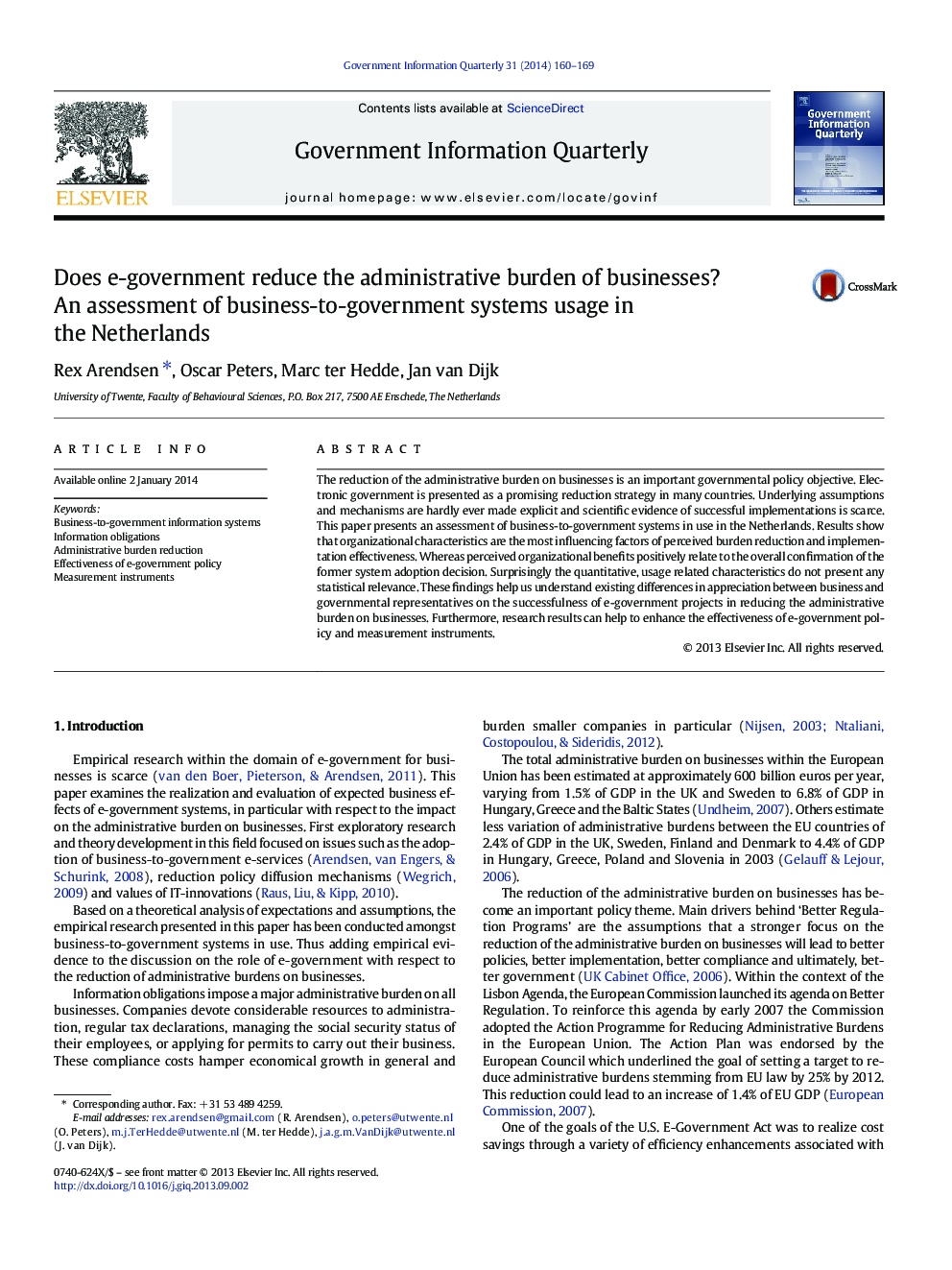| Article ID | Journal | Published Year | Pages | File Type |
|---|---|---|---|---|
| 1024463 | Government Information Quarterly | 2014 | 10 Pages |
•E-government systems struggle to reduce the administrative burden on businesses.•Organizational characteristics Size and ICT staff positively influence perceptions.•Quantitative, usage-rate related characteristics do not have any influence.•This challenges the effectiveness of administrative burden measurement instruments.
The reduction of the administrative burden on businesses is an important governmental policy objective. Electronic government is presented as a promising reduction strategy in many countries. Underlying assumptions and mechanisms are hardly ever made explicit and scientific evidence of successful implementations is scarce. This paper presents an assessment of business-to-government systems in use in the Netherlands. Results show that organizational characteristics are the most influencing factors of perceived burden reduction and implementation effectiveness. Whereas perceived organizational benefits positively relate to the overall confirmation of the former system adoption decision. Surprisingly the quantitative, usage related characteristics do not present any statistical relevance. These findings help us understand existing differences in appreciation between business and governmental representatives on the successfulness of e-government projects in reducing the administrative burden on businesses. Furthermore, research results can help to enhance the effectiveness of e-government policy and measurement instruments.
